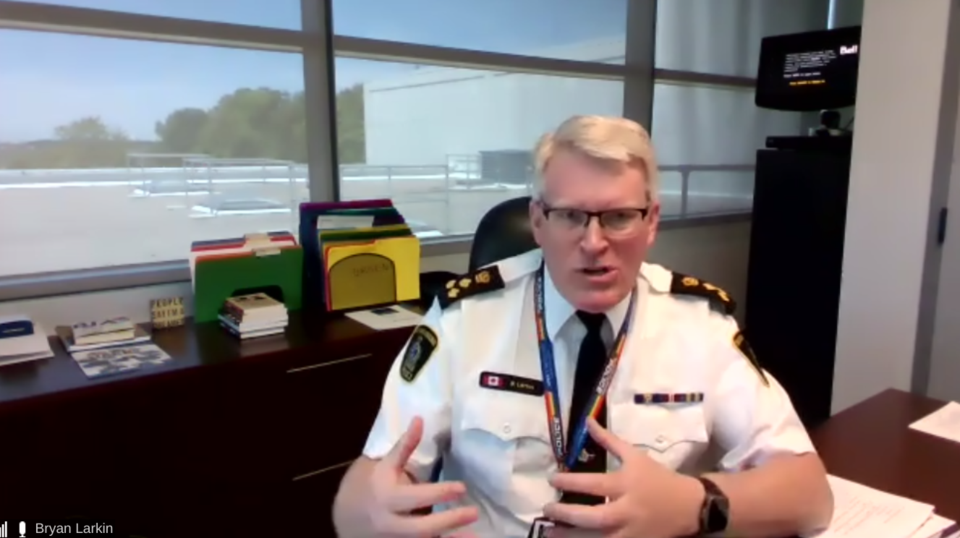The head of the Waterloo Regional Police Service (WRPS) says the organization recognizes the need to do enhanced work with local Muslim organization to tackle anti-Muslim hate.
"We have a long history of partnership with the Coalition of Muslim Women of K-W and the Muslim Association of Canada," said police chief Bryan Larkin during a board meeting Wednesday.
"We have a hate-crime and extremist team that focuses on outreach and connection with the mosques and imam around personal safety and mosque safety and personal investigative work."
A secondary piece to that is the internal education and awareness work done by the equity inclusion adversity team.
"For example," Larkin said, "in July of 2019, we did a lot of work with our 9-1-1 communications centre so when we're getting calls around Islamophobic (behaviours), (so) our communicators would be able to process and understand and have greater education and awareness so we can actually ask the right questions. We can ensure we're tracking the right information so the patrol officer that's attending would be in a position to have a greater understanding of what transpired."
He said as the leader of the service, he recognizes that a number of hate incidences don't cross the criminal threshold.
"It's very challenging to lay charges based on that federal piece of legislation," said Larkin. "The online hate and graffiti and comments all require proper community tracking. The coalition has launched a portal that our equity inclusion and diversity team works very closely with."
Internally, he said, the service is doing significant conscious and implicit bias training.
And WRPS continues to look at continuing to better reflect the community's diversity in its recruitment initiatives, Larkin said.
He said he didn't have any numbers off hand to indicate how many of the new recruits represented the non-white community or how many of the 1,200 service members were from the Muslim community, but there has been some growth in diversity in the service.
"We have a number of civilian professionals and officers that are Muslim and bring tremendous asset," he said, adding, "it is challenging promoting policing as a career choice in communities that may have low trust or may not be seen as a profession to follow."
Larkin said the London incident was simply tragic.
"To see the Afzaal family and the nine-year-old boy that is orphaned, tears apart at our core," he said. "It's not in line with the values of the community I want to live in or the police service I want to lead."
In response to such incidents, Larkin said, WRPS investigative teams connected with the Muslim community and mosques to ensuring safety.
"We very much support and view ourselves as allies," he added. "We stand in solidarity with the Muslim community."



